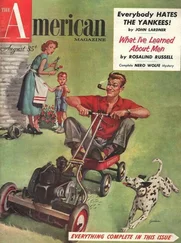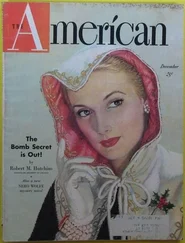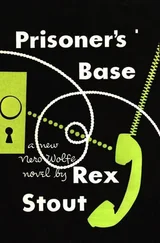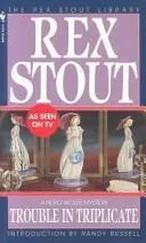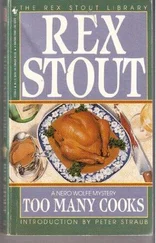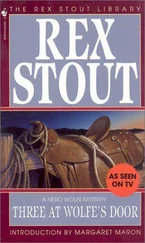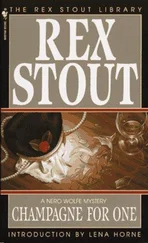Rex Stout - Omit Flowers
Здесь есть возможность читать онлайн «Rex Stout - Omit Flowers» весь текст электронной книги совершенно бесплатно (целиком полную версию без сокращений). В некоторых случаях можно слушать аудио, скачать через торрент в формате fb2 и присутствует краткое содержание. Год выпуска: 1948, Жанр: Классический детектив, на английском языке. Описание произведения, (предисловие) а так же отзывы посетителей доступны на портале библиотеки ЛибКат.
- Название:Omit Flowers
- Автор:
- Жанр:
- Год:1948
- ISBN:нет данных
- Рейтинг книги:4 / 5. Голосов: 1
-
Избранное:Добавить в избранное
- Отзывы:
-
Ваша оценка:
- 80
- 1
- 2
- 3
- 4
- 5
Omit Flowers: краткое содержание, описание и аннотация
Предлагаем к чтению аннотацию, описание, краткое содержание или предисловие (зависит от того, что написал сам автор книги «Omit Flowers»). Если вы не нашли необходимую информацию о книге — напишите в комментариях, мы постараемся отыскать её.
Omit Flowers — читать онлайн бесплатно полную книгу (весь текст) целиком
Ниже представлен текст книги, разбитый по страницам. Система сохранения места последней прочитанной страницы, позволяет с удобством читать онлайн бесплатно книгу «Omit Flowers», без необходимости каждый раз заново искать на чём Вы остановились. Поставьте закладку, и сможете в любой момент перейти на страницу, на которой закончили чтение.
Интервал:
Закладка:
“When, last night?” Cramer demanded.
Wolfe glared at him. “Sir, you are committed. Later you’ll get all you want. Now I’m working.”
“Who told you he discarded me?” Julie asked. I thought her voice sounded much like Mrs. Whitten’s, and then I realized that it wasn’t the voices that were similar, it was the emotions. It was hate.
“The source was Mr. Pompa,” Wolfe told her. “If the word was unfortunate and offends you, I am sorry. It may not fit the occasion at all. To go on. Last evening, looking at those people and hearing them, I concluded that none of them was capable of trying to kill their mother. I couldn’t exclude the possibility, but I could tentatively reject it, and I did. But that brought Miss Alving in again. Mrs. Whitten claimed that not only could she not identify her assailant, she didn’t even know whether it was a man or a woman. That was absurd. It was of course intrinsically improbable, but it was made absurd by the question, if she had no idea who the attacker was why was she going to such lengths to keep the incident from disclosure? Even leaving her bed to come to see me in the dead of night? Therefore she knew who had attacked her, and desperately wanted no one else to know. I excluded her children, as I have said, whom she might have shielded through love or pride, and I knew of no one else in that category. But not only love rides with pride; hate also does. There was Miss Alving again.”
Wolfe shook his head. “Miss Alving was still only a guess, though now a much more likely one. It was worth having a try at her. The device Mr. Goodwin had used on Mrs. Whitten got an encore. He went to see Miss Alving and told her that I wished to speak with her on behalf of Mrs. Whitten. It worked beautifully. For a department buyer in a great department store to leave her post in the middle of the morning on her private affairs is by no means routine or casual, but Miss Alving did that. She came here at once with Mr. Goodwin. My guess was now good enough to put to the test, and Miss Alving’s reaction removed all doubt, though she did her best. Mr. Goodwin brought Mrs. Whitten down, and that made the situation impossible for both of you. You have both admitted that the attack on Mrs. Whitten was made by Miss Alving. That is true, Miss Alving?”
“Yes.” Julie tried to swallow. “I wish I had killed her.”
“A very silly wish. It is true, Mrs. Whitten?”
“Yes.” Mrs. Whitten’s expression was not a wishing one. “I didn’t want it to be known because I knew — I knew my husband wouldn’t. I hadn’t thought of the open door, and so I didn’t realize that she had killed him. She had waited for six long months, waited and hoped, hoping to get him back.” Mrs. Whitten’s eyes left Wolfe, and they were hot with hate and accusation as they fixed on Julie. “But you couldn’t! He was mine, and you couldn’t have him! So you killed him!”
“That’s a lie,” Julie said, deadly quiet and low. “It’s a lie and you know it. I did have him. He was mine all the time, and you knew it. You found it out.”
Wolfe pounced. “What’s that?” he snapped. “She found it out?”
“Yes.”
“Look at me, Miss Alving. Let her go. Look at me. You are in no danger; there was no open door. When did she find it out?”
Julie’s head had slowly turned to face him. “A month ago.”
“How do you know?”
“He wrote me that he didn’t dare to come — where we met — because she had learned about it. He was afraid, terribly afraid of her. I knew he was a coward. Don’t ever fall in love with a coward.”
“I’ll guard against it. Have you got the letter?”
She nodded. The pallor was gone and her face was flushed, but her voice was quiet and dull. “I have all of them. He wrote eleven letters in that month, but I never saw him again. He kept saying he would come soon, and he would as soon as he could, but he was a coward.”
“Did he tell you how she learned about it?”
“Yes, it was in the first letter.”
“And when he died, and you knew she had killed him, you thought you would avenge him yourself, was that it?”
“Yes. What else could I do?”
“You might — but no matter. You loved him?”
“I do love him.”
“Did he love you?”
“Yes — oh, yes!”
“Better than he loved his wife?”
“He hated her. He despised her. He laughed at her.”
Mrs. Whitten made a choking noise and was out of her chair. But I, rather expecting a little something, was on my feet too, and in front of her. She started to stretch a hand to me and then sat down again. Thinking it remotely possible that she had a cutlery sample in her bag, I stood by.
Wolfe spoke to her. “I should tell you, madam, that I’ve had you in mind from the first. When you discovered your family secretly gathered in the dining room you were not yourself. Instead of upbraiding and bullying them, which would have been in character, you appealed to them. What better explanation could there be of that reversal in form than that you knew your husband was upstairs dead, you having killed him with one swift stab in the back as you passed behind him, leaving him to go down after Mr. Pompa? Your shrewd and careful plan to have it laid to Pompa was badly disarranged by the awful discovery that your sons and daughters were there too; no wonder you were upset. Your plan was not only shrewd and careful, but long and deep, for when, a month ago, you learned of your husband’s infidelity, what did you do? Drive him out with a blast of fury and contempt? No. Understand him and forgive him and try to win him all for you? No. You displayed the blooming and ripening of your affection and trust for him by announcing that he was to be put in control of the family business. That made it certain, you thought, that when you chose your moment and he died, you would be above suspicion. And indeed you were, but you had bad luck. It was ruthless, but wise, to arrange for the police to have a victim at hand, but you had the misfortune to select for that role a man who was once a good cook — indeed, a great one.”
Wolfe jerked his head up. “Mr. Cramer, you are no longer committed. I don’t know how you handle a case like this. You have a man in jail charged with murder, but the murderer is here. How do you proceed?”
“I need things,” Cramer rasped. He was flabbergasted and trying not to show it. “I need those letters. What’s that about an open door? I need—”
“You’ll get all of it. I mean what happens immediately? What about Mrs. Whitten?”
“That’s no problem. There are two men in my car out front. If her wound didn’t keep her from riding down here last night it won’t keep her from riding downtown now.”
“Good.” Wolfe turned to Julie. “I was under an obligation to you. I told you that I thought I could arrange it so that Mrs. Whitten would not prosecute, if you would help me. You have unquestionably helped me. You have done your part. Do you agree that I have done mine?”
I don’t think she heard a word of it. She was looking at him but not seeing him. “There was a notice in yesterday’s paper,” she said, “that his funeral would be today at four o’clock, and it said omit flowers. Omit flowers!” She seemed to be trying to smile, and suddenly her head dropped into her hands and she shook with sobs.
XI
I stood facing the door of the South Room, in the hall on the third floor, with my hand raised. Wolfe, positively refusing to do it himself, had left it to me. I knocked. A voice told me to come in, and I entered.
Phoebe tossed a magazine onto the table and left the chair. “You certainly took long enough. Where’s Mother?”
“That’s what I came to tell you.”
Читать дальшеИнтервал:
Закладка:
Похожие книги на «Omit Flowers»
Представляем Вашему вниманию похожие книги на «Omit Flowers» списком для выбора. Мы отобрали схожую по названию и смыслу литературу в надежде предоставить читателям больше вариантов отыскать новые, интересные, ещё непрочитанные произведения.
Обсуждение, отзывы о книге «Omit Flowers» и просто собственные мнения читателей. Оставьте ваши комментарии, напишите, что Вы думаете о произведении, его смысле или главных героях. Укажите что конкретно понравилось, а что нет, и почему Вы так считаете.

